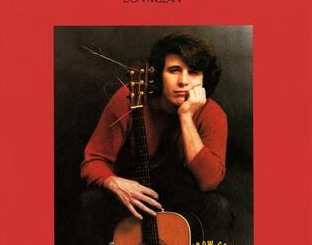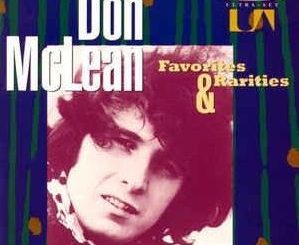American Pie by Don McLean Lyrics Meaning – Unpacking the Anthem of a Generation
Lyrics
I can still remember how that music
Used to make me smile
And I knew if I had my chance
That I could make those people dance
And maybe they’d be happy for a while
But February made me shiver
With every paper I’d deliver
Bad news on the doorstep
I couldn’t take one more step
I can’t remember if I cried
When I read about his widowed bride
But something touched me deep inside
The day the music died
So, bye-bye, Miss American Pie
Drove my Chevy to the levee, but the levee was dry
And them good ol’ boys were drinkin’ whiskey and rye
Singin’, “This’ll be the day that I die
This’ll be the day that I die”
Did you write the book of love
And do you have faith in God above
If the Bible tells you so?
Now, do you believe in rock ‘n’ roll
Can music save your mortal soul
And can you teach me how to dance real slow?
Well, I know that you’re in love with him
‘Cause I saw you dancin’ in the gym
You both kicked off your shoes
Man, I dig those rhythm and blues
I was a lonely teenage broncin’ buck
With a pink carnation and a pickup truck
But I knew I was out of luck
The day the music died
I started singin’, bye-bye, Miss American Pie
Drove my Chevy to the levee, but the levee was dry
Them good ol’ boys were drinkin’ whiskey and rye
And singin’, “This’ll be the day that I die
This’ll be the day that I die”
Now, for ten years we’ve been on our own
And moss grows fat on a rollin’ stone
But that’s not how it used to be
When the jester sang for the king and queen
In a coat he borrowed from James Dean
And a voice that came from you and me
Oh, and while the king was looking down
The jester stole his thorny crown
The courtroom was adjourned
No verdict was returned
And while Lennon read a book on Marx
The quartet practiced in the park
And we sang dirges in the dark
The day the music died
We were singin’, bye-bye, Miss American Pie
Drove my Chevy to the levee, but the levee was dry
Them good ol’ boys were drinkin’ whiskey and rye
And singin’, “This’ll be the day that I die
This’ll be the day that I die”
Helter Skelter in a summer swelter
The birds flew off with a fallout shelter
Eight miles high and fallin’ fast
It landed foul on the grass
The players tried for a forward pass
With the jester on the sidelines in a cast
Now the halftime air was sweet perfume
While the sergeants played a marching tune
We all got up to dance
Oh, but we never got the chance
‘Cause the players tried to take the field
The marching band refused to yield
Do you recall what was revealed
The day the music died?
We started singin’, bye-bye, Miss American Pie
Drove my Chevy to the levee, but the levee was dry
Them good ol’ boys were drinkin’ whiskey and rye
And singin’, “This’ll be the day that I die
This’ll be the day that I die”
Oh, and there we were all in one place
A generation lost in space
With no time left to start again
So, come on, Jack be nimble, Jack be quick
Jack Flash sat on a candlestick
‘Cause fire is the Devil’s only friend
Oh, and as I watched him on the stage
My hands were clenched in fists of rage
No angel born in Hell
Could break that Satan’s spell
And as the flames climbed high into the night
To light the sacrificial rite
I saw Satan laughing with delight
The day the music died
He was singin’, bye-bye, Miss American Pie
Drove my Chevy to the levee, but the levee was dry
Them good ol’ boys were drinkin’ whiskey and rye
And singin’, “This’ll be the day that I die
This’ll be the day that I die”
I met a girl who sang the blues
And I asked her for some happy news
But she just smiled and turned away
I went down to the sacred store
Where I’d heard the music years before
But the man there said the music wouldn’t play
And in the streets, the children screamed
The lovers cried, and the poets dreamed
But not a word was spoken
The church bells all were broken
And the three men I admire most
The Father, Son, and the Holy Ghost
They caught the last train for the coast
The day the music died
And they were singin’, bye-bye, Miss American Pie
Drove my Chevy to the levee but the levee was dry
And them good ol’ boys were drinkin’ whiskey and rye
Singin’, “This’ll be the day that I die
This’ll be the day that I die”
They were singin’, bye-bye, Miss American Pie
Drove my Chevy to the levee but the levee was dry
Them good ol’ boys were drinkin’ whiskey and rye
Singin’, “This’ll be the day that I die”
A tapestry of cultural revolution, personal reflection, and historical moments, Don McLean’s ‘American Pie’ resonates as an anthem that encapsulates an entire generation’s experience. Released in 1971, this lyrical leviathan invites listeners on an odyssey through the changing landscape of 1960s America, deftly weaving together politics, tragedy, and rock ‘n’ roll.
Peeling back the layers of ‘American Pie,’ we find a rich narrative that both laments and critiques, a song that has intrigued and beguiled audiences for over fifty years. As we explore its enigmatic verses, the underlying meanings and cultural references subtly unfold to reveal McLean’s introspective commentary on the loss of innocence and the transformative power of music.
The Day the Music Died – An Overture to Loss
At the heart of ‘American Pie’ is a sorrowful allusion to ‘the day the music died.’ This phrase specifically commemorates February 3, 1959, when rock ‘n’ roll icons Buddy Holly, Ritchie Valens, and The Big Bopper perished in a tragic plane crash. Metaphorically, McLean uses this event as a starting point to chronicle the end of an era – the loss of the raw, unpolished spirit of early rock ‘n’ roll.
Beyond its immediate reference, ‘the music’ signifies the broader demise of the idealistic 1960s, marred by political assassinations, civil rights struggles, and the Vietnam War. With a mirror to the fraying American Dream, McLean elicits a nostalgia for simpler times and a sober acknowledgment of change.
Singin’ This’ll be the Day that I Die – Catchy Refrain with a Grim Twist
Arguably one of the most memorable lines in music history, ‘This’ll be the day that I die’ serves as a haunting refrain throughout the song. Its genesis lies in Buddy Holly’s lyric, ‘That’ll be the day,’ but with a darker, more fatalistic bent.
The clever twist of words is a testament to McLean’s songwriting prowess, transforming a buoyant phrase into an ominous prophecy. It underscores the song’s theme of endings – not only of lives and careers but also of cultural innocence and societal idealism.
A Lyrical Journey Through a Decade of Disarray
Each verse in ‘American Pie’ is a mosaic, piecing together iconic figures and moments of the ’60s. From ‘the jester’ who could be Bob Dylan – borrowing ‘a coat’ from quintessential rebel James Dean, to the Beatles with ‘the quartet practicing in the park,’ McLean’s narrative churns with cultural heavyweights.
The song’s canvas stretches to include political undertones with ‘Lennon read a book on Marx.’ These lyrics not only reflect McLean’s personal sorrow but resonate with listeners as a shared collective memory of a decade’s volatile social transformation.
The Hidden Meaning Behind the Music’s Metaphors
To the casual listener, ‘American Pie’s’ verses might unfold as a collection of random poetic riffs. Yet, each line is meticulously crafted to serve as a metaphor. The ‘Chevy to the levee’ represents the American journey – a country traveling down a seemingly dry path, thirsting for cultural and spiritual fulfillment.
Verses like ‘Jack be nimble, Jack be quick’ evoke folklore, but when placed in context with the song’s line of ‘fire is the Devil’s only friend,’ it echoes the tumult and danger of the era, painting a picture of a society dancing dangerously close to moral and social upheaval.
The Lingering Echoes of ‘American Pie’ in Today’s World
Over five decades later, the legacy of ‘American Pie’ endures. It is not merely a song but a historical thread that continues to weave through the fabric of modern culture. Its verses have become a touchstone for those seeking to understand the complexities of the past as they relate to the present.
As new generations discover McLean’s opus, they find that the yearning for authenticity, the critique of cultural decay, and the celebration of music’s unifying power are as relevant today as they were in the tumultuous era of ‘American Pie.’ This is the true genius of McLean’s masterpiece – it is timeless, boundless, and endlessly interpretable.








